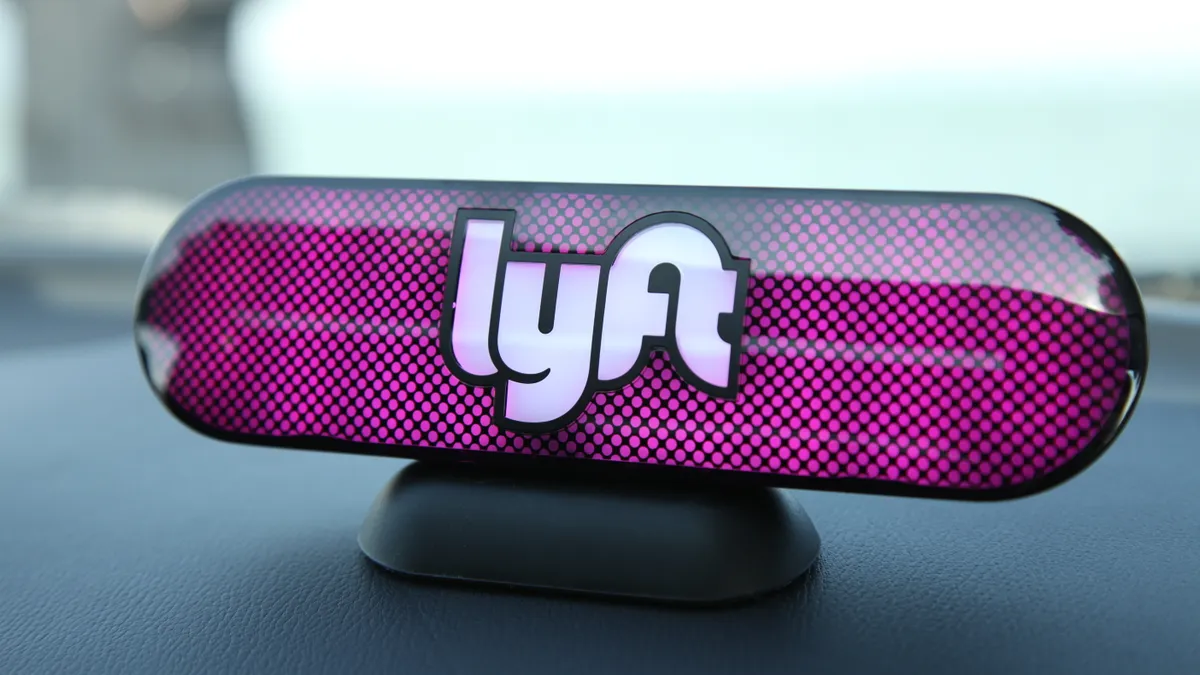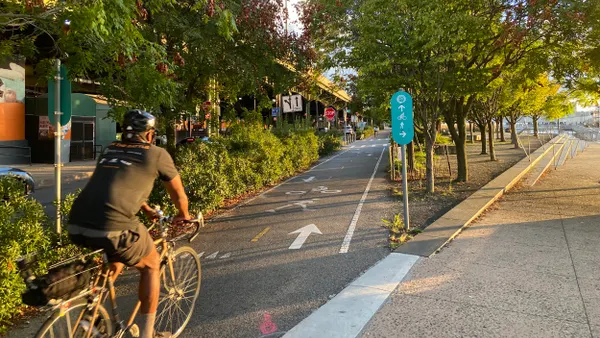Ride-hailing service Lyft will offer several benefits to U.S. drivers to encourage them to switch to electric vehicles, the company announced in a blog post Monday.
Beginning this week, drivers can receive up to 45% off fast charging at EVgo stations, depending on their Lyft Rewards status and which market they serve. Drivers can also get up to 7% cash back on public charging and discounts on Level 2 home charger hardware and installation. California drivers can earn an extra $150 per week through the end of 2024 for each week they provide 50 rides in their EVs.
The program is the latest in a series of moves Lyft has made to fulfill its 2020 pledge to transition entirely to electric vehicles by 2030. The company previously launched EV incentive programs in San Mateo County, California, and southeastern Michigan. The California incentive may be in response to the state’s 2021 mandate that ride-hailing services complete 90% of their vehicle miles in the state with fully electric vehicles by 2030. Paul Augustine, director of sustainability at Lyft, said in a statement that the new program is part of the company’s efforts to help address climate change.
“We know many drivers on Lyft want to switch to EVs, which is why we’re focused on addressing the biggest barriers they face in transitioning: upfront costs and access to charging,” Augustine said in a press release.
The company has lobbied in favor of state and federal initiatives aimed at accelerating vehicle electrification, including California’s failed Proposition 30, which would have added a 1.75% tax on personal income above $2 million to fund purchasing incentives for zero-emission vehicles, electric vehicle charging stations and wildfire prevention. It’s also one of seven companies, including Airbnb, to join the effort by electrification nonprofit Rewiring America to educate the public about the Inflation Reduction Act’s electrification and home energy efficiency incentives.
Growing consumer demand, public-private partnerships, government incentives and regulatory changes all play a role in the widespread adoption of EVs. But the rollout of crucial EV charging infrastructure might take longer than consumers think, one researcher has said, in part due to a lack of coordination among private companies, cities, states and the federal governments.











